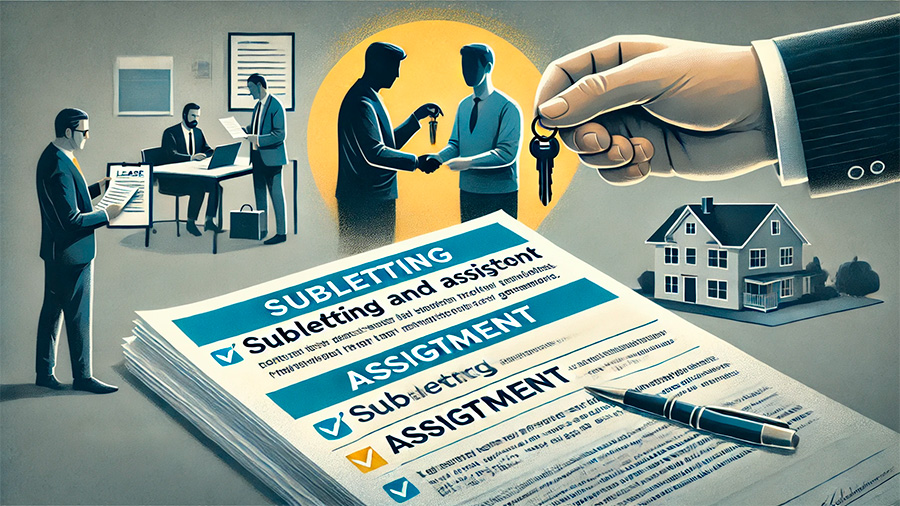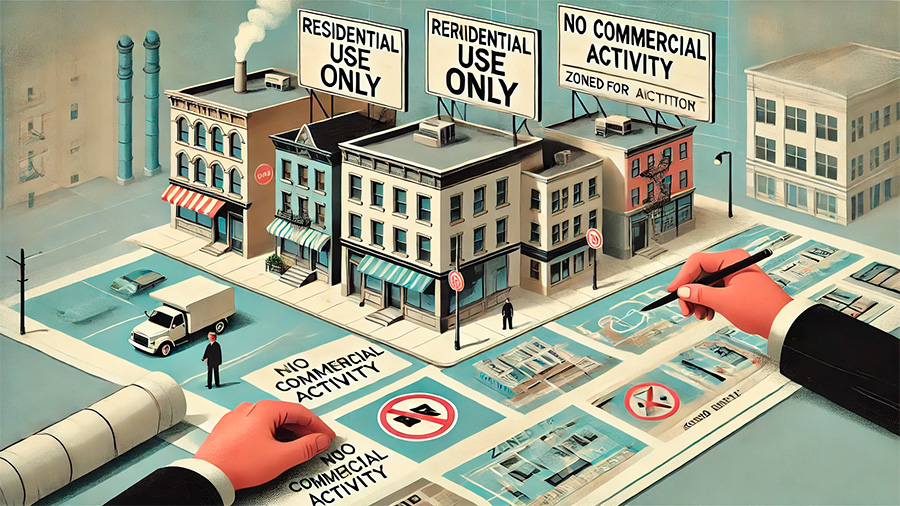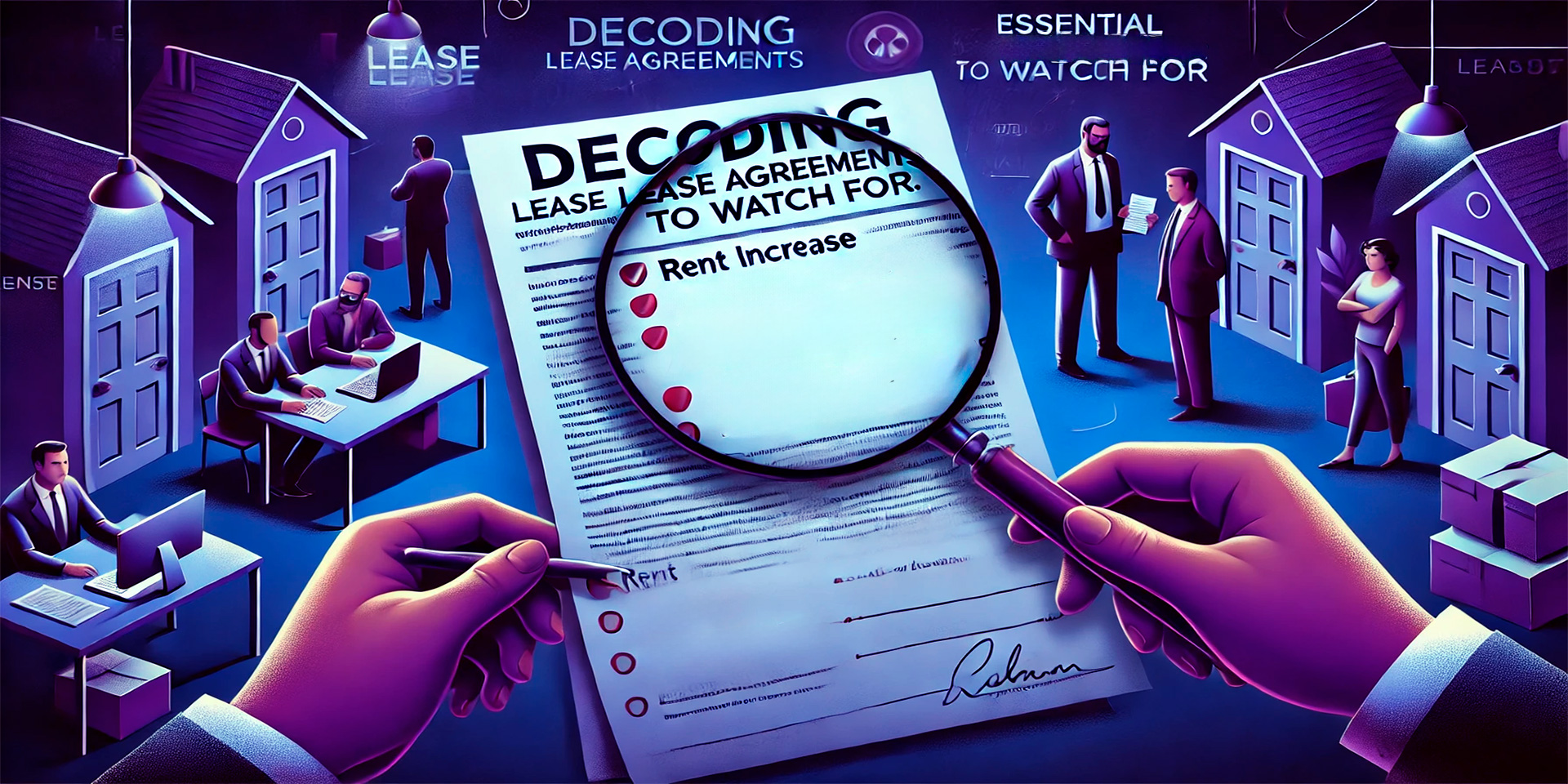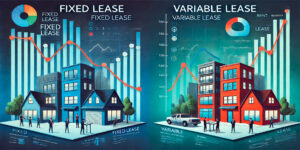Signing a lease is a major commitment, whether you’re renting a home or leasing commercial space. Lease agreements can be complex, filled with legal jargon and fine print that may not be immediately clear. However, understanding the key clauses in your lease is crucial for protecting your rights and avoiding potential pitfalls. From rent increases to maintenance responsibilities, the terms of your lease can significantly impact your renting or leasing experience. In this article, we’ll break down the most important lease clauses to watch out for, so you can sign your next lease with confidence.
Rent Payment Terms and Increases
One of the most important clauses in any lease agreement is the section detailing rent payment terms. This clause outlines how much rent you will pay, when it is due, and how it should be paid. Understanding these terms ensures that you stay on top of your financial obligations and avoid any misunderstandings with your landlord or property manager.
Rent Payment Schedule
The rent payment schedule will specify whether rent is due monthly, quarterly, or on another schedule. Most residential leases require monthly payments, but some commercial leases may have different terms. Be sure to clarify when payments are due each month to avoid late fees. Additionally, check whether there is a grace period after the due date before penalties are applied.
Rent Increases
Rent increase clauses can have a significant impact on your long-term affordability, especially in multi-year leases. Some leases include a provision that allows the landlord to raise rent periodically, either annually or after the initial lease term. These increases may be based on a fixed percentage or tied to inflation. Commercial leases often include “escalation clauses” that specify how rent will increase over time. Understanding how and when your rent may increase allows you to plan ahead and decide whether the terms are manageable.
Security Deposits and Fees
Security deposits are standard in most lease agreements, but it’s important to understand the terms surrounding this deposit to avoid issues when moving out. The lease should clearly outline the amount of the deposit, how it will be used, and the conditions under which it will be returned.
Deposit Amount and Use
Typically, security deposits are equal to one to two months’ rent, but this can vary depending on local laws and the type of property you are leasing. The lease should explain how the deposit may be used by the landlord, such as to cover damages, unpaid rent, or cleaning costs. Ensure that the terms are clear, and be aware of your responsibilities for maintaining the property to avoid losing part or all of your deposit.
Non-Refundable Fees
In addition to security deposits, some leases include non-refundable fees for things like cleaning or pet deposits. Unlike security deposits, these fees are not returned at the end of the lease, regardless of the condition of the property. Make sure you understand which fees are refundable and which are not, so you’re not surprised by additional costs.
Maintenance and Repair Responsibilities
Leases should clearly define the responsibilities for maintenance and repairs. This clause outlines which party—the landlord or tenant—is responsible for keeping the property in good condition and addressing any necessary repairs.
Landlord Responsibilities
In most cases, landlords are responsible for maintaining the structural integrity of the property, including plumbing, electrical systems, heating, and air conditioning. The lease should specify that the landlord is responsible for repairs related to normal wear and tear, as well as any major issues that affect the habitability of the property. For commercial leases, the terms may vary, with some tenants required to handle more maintenance tasks.
Tenant Responsibilities
Tenants are typically responsible for keeping the property clean and reporting any issues that require repairs. For residential leases, this may include basic upkeep, such as replacing light bulbs or cleaning appliances. In commercial leases, tenants may be responsible for maintaining the interior of the space, such as flooring or fixtures. Make sure the lease specifies what is expected of you, and understand any penalties for failing to meet these obligations.

Subletting and Assignment Clauses
If you plan to move or change your business operations before the lease term ends, it’s important to review the subletting and assignment clauses. These clauses determine whether you are allowed to sublease the property to another tenant or assign the lease to someone else.
Subletting
Subletting allows you to rent out all or part of the property to another person while maintaining your responsibility for the lease. Some leases permit subletting with the landlord’s approval, while others may prohibit it entirely. If you think you may need to sublet, check the lease for any restrictions or required approvals. In some cases, landlords may charge a fee for subletting or require the subtenant to meet specific qualifications.
Lease Assignment
Lease assignments are less common but allow you to transfer the lease to a new tenant entirely. This releases you from future obligations under the lease. However, many landlords require approval before you can assign a lease, and they may impose certain conditions. If lease assignment is important to you, make sure to negotiate these terms before signing.
Renewal and Termination Clauses
Understanding how your lease will end—or continue—is just as important as knowing how it begins. Renewal and termination clauses outline the steps you need to take to either extend the lease or move out.
Lease Renewal Terms
Some leases automatically renew unless you provide written notice to terminate, while others require you to negotiate a new lease at the end of the term. It’s important to understand what happens when the lease expires and whether you have the option to renew at the same rent or under new terms. Many commercial leases include an “option to renew” clause, which gives the tenant the right to extend the lease at a predetermined rate.
Termination Notice and Penalties
The lease should specify how much notice you are required to give if you plan to terminate the lease. For residential leases, this is usually 30 or 60 days before the end of the lease term. Commercial leases may require more notice, especially for long-term agreements. Be aware of any penalties for early termination, such as forfeiting your security deposit or paying a portion of the remaining rent.

Use of Property and Permitted Activities
Leases often include clauses that restrict how the property can be used. These clauses are particularly important in commercial leases, where the landlord may have specific requirements regarding the type of business that can operate in the space.
Permitted Uses
The “permitted use” clause outlines the specific activities allowed on the property. For example, a commercial lease may specify that the space can only be used for retail or office purposes. Similarly, residential leases may include rules about running a home-based business or subletting rooms. Make sure the lease allows for all the activities you plan to conduct on the property, and ask for clarification if necessary.
Restrictions on Alterations
Many leases include restrictions on making alterations to the property, such as painting, remodeling, or installing signage. For commercial properties, this can be especially important if you need to make modifications to suit your business operations. Review any limitations on alterations, and negotiate with the landlord if you need flexibility to customize the space.
Insurance Requirements
Most lease agreements require tenants to maintain certain types of insurance coverage, especially for commercial properties. These requirements are designed to protect both the tenant and landlord in the event of damage, injury, or loss.
Tenant Liability Insurance
For commercial leases, tenants are typically required to carry liability insurance to protect against accidents or injuries that occur on the property. The lease should specify the minimum coverage limits and the types of policies required. In residential leases, renters’ insurance may also be required to cover personal property and liability for accidents.
Property Damage Insurance
In addition to liability insurance, some leases require tenants to obtain property damage insurance to cover any damage to the building or leased space. This can include fire, water, or other damage caused by tenant negligence. Make sure you understand the insurance requirements and factor the cost of coverage into your budget.
Conclusion: Understanding Your Lease is Key to a Smooth Experience
Before signing a lease, it’s essential to fully understand the key clauses that can impact your renting or leasing experience. By carefully reviewing rent terms, maintenance responsibilities, and renewal options, you can avoid surprises and protect yourself from potential issues down the road. Whether you’re leasing a home or a commercial property, taking the time to clarify these important terms will help ensure a smooth and successful lease.





